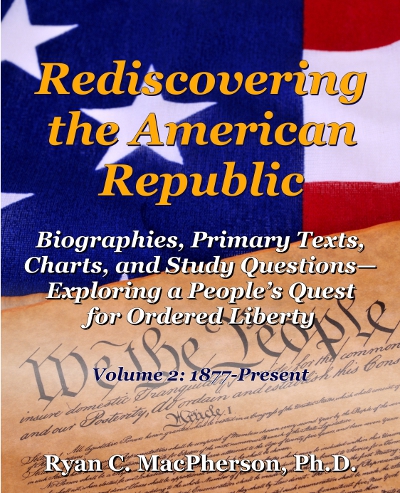As the Supreme Court docket for Texas v. Pennsylvania et al. reveals, Democrats (no less than Republicans) have good reason to thank Texas for suing Pennsylvania and even to endorse Texas in its cause.
This may come as a surprise, especially to readers who have relied on mainstream media reports such as the following:
- Newsweek: Swing States Respond to Texas Lawsuit: “A Mass of Baseless Claims”
- New York Times: Two Reasons the Texas Election Case Is Faulty: Flawed Legal Theory and Statistical Fallacy
- ABC News: States Blast Texas Bid to Overturn Election as “Seditious Abuse of Judicial Process”
- Washington Post editorial: No, the ‘Hail Mary’ Plan for Trump Isn’t Going to Work
Reading the documents filed with the Court yields a different story, a story which Democrats and Republicans ought equally appreciate. The complaint filed by Texas boils down to three points:
- Factual Finding (i.e., the problem): “Put simply, there is substantial reason to doubt the voting results in the Defendant States.” (p. 7)
- Declaratory Relief (i.e., part of the solution): “Declare that Defendant States Pennsylvania, Georgia, Michigan, and Wisconsin administered the 2020 presidential election in violation of the Electors Clause and the Fourteenth Amendment of the U.S. Constitution.” (p. 39)
- Injunctive Relief (i.e. the rest of the solution): “If any of Defendant States have already appointed presidential electors to the Electoral College using the 2020 election results, direct such States’ legislatures, pursuant to 3 U.S.C. § 2 and U.S. CONST. art. II, § 1, cl. 2, to appoint a new set of presidential electors in a manner that does not violate the Electors Clause and the Fourteenth Amendment, or to appoint no presidential electors at all.” (p. 40)
The constitutional administration of a fair election should be of equal interest to all parties. Indeed, it is the equal right of all.
What Texas Actually Argues
Read the complaint: Texas has not demanded that the Supreme Court name Trump rather than Biden the winner, but rather that the Supreme Court ensure that the electoral votes from the four defendant states either result from a fair and constitutionally administered procedure, or else that no electoral votes be counted at all.
If the 62 electoral votes from those states are vacated, the result (all other things being equal) would remain a Biden victory, 344-332. (For Trump to win, those votes would have to go to him rather than be vacated; or else if those votes are vacated, he would need to gain votes currently expected for Biden in Arizona and Nevada—or some other permutation involving the right mix of each of the six contested states.)
But more important than “who wins?” is whether all Americans can unite for the preservation of common rules of the game—i.e., the Constitution. Therefore, Democrats no less than Republicans should support a fair hearing by the U.S. Supreme Court of Texas v. Pennsylvania.
Far from being a rogue state, Texas has many friends around the nation—some holding high offices—who have filed briefs in support of its complaint.
What Supporting Briefs Say
A friend of the court brief by 17 states supports the Texas complaint by emphasizing that what has occurred in the four defendant states is a violation of the “separation of powers” doctrine, or what middle schoolers learn as “checks and balances,” which “safeguard liberty.”
The same 17 states additionally filed a brief to intervene, that is, to become parties on par with Texas, since their interests and rights in the case parallel those of Texas: central to this contention is the notion that the adverse effects resulting from voter fraud in the four defendant states have national repercussions and hence impact all sister states.
A brief filed by four lawyers who are experts in constitutional law argues that the open-ended nature of voting (vote early, vote late, vote in person, vote by mail) as conducted in the defendant states, particularly as the rules of the game were changed by the sole discretion of state officers officers rather than by a transparent legislative process, violates federal election law as well as the Constitution’s Elector Clause.
A brief filed by 60 members of the Pennsylvania Assembly supports Texas against their own state, because other officers within their state have effectively usurped the authority that the U.S. Constitution grants to the state assembly with respect to regulating presidential elections.
A similar argument was submitted by 24 members of the Pennsylvania Senate. “Only state legislatures and Congress have the authority to regulate elections.” (p. 3) “The state’s supreme court had no constitutional authority to override the legislature.” (p. 12)
The Speaker of the House and the Senate Majority Leader of Pennsylvania request constitutionality because that is what safeguards fair play: “The unimpeachability of our elections requires clear procedures of administration so that everyone gets a fair shake. Unfortunately, outside actors have so markedly twisted and gerrymandered the Commonwealth’s Election Code to the point that amici find it unrecognizable from the laws that they enacted.” (p. 8)
In the U.S. House of Representatives, 106 [UPDATE: expanded to 126] members submitted a related argument: “The U.S. Constitution gives plenary authority to state legislatures to determine the manner of appointing presidential electors.” (p. 2) Moreover, “the usurpation of legislative power in Pennsylvania produced unconstitutional ballots” (p. 7), and likewise for Georgia (p. 10), Michigan (p. 11), Wisconsin (p. 13). Therefore, “it is now the duty of this Honorable Court to objectively review the facts presented by the Plaintiff in this historic case, render judgment upon the unconstitutional actions in the Defendant states, and restore the confidence of all Americans that the rule of law will be upheld today and our elections in the future will be secured.” (p. 17)
One lieutenant governor plus 38 [UPDATE: expanded to 64] legislators from the governments of 3 [UPDATE: expanded to 8] states together argue that “the reticence and failure of sister states to appropriately fulfill their constitutional duties with respect to a presidential election has materially injured the Republic shared by all states.” (p. 1) Their argument, unique among the briefs filed, focuses on the Guarantee Clause, in which the Constitution guarantees to each and every state a republican form of government. “To allow such an act [as the usurpation of legislative authority] would permit an elite group of partisan officers, acting with no authority, to abandon the required republican form of government in their states. This the Constitution does not allow.” (p. 15)
The Justice and Freedom Fund warns that the last-minute transformation of voting procedures by non-legislators violated the Equal Protection Clause of the Fourteenth Amendment: “the unilateral election law changes by non-legislative actors in Defendant States violated Equal Protection by creating differential voting standards.” (p. 12)
Numerous state legislators (15 from Michigan, 4 from Pennsylvania) together with 6 voters from 3 of the defendant states have petitioned to intervene, seeking to join Texas in the suit against their own states. They run through the facts, the law, and the Constitution, in over 400 numbered paragraphs. In addition to the Elector Clause and the Equal Protection Clause, they also seek relief under the Due Process Clause. “When election practices reach ‘the point of patent and fundamental unfairness,’ the integrity of the election itself violates substantive due process.” (p. 88)
Attorney Lin Wood, a Georgia resident, argues that his secretary of state “unilaterally abrogated the Legislature’s requirement concerning signatures and verifications of absentee ballots and thereby set aside or ‘amended’ state law.” (p. 4)
Nearly thirty currently serving or recently elected members of the Georgia legislature argue that the Georgia Election Board and Secretary of State unlawfully changed the rules of the game: “The unauthorized modifications of Georgia law, coupled with the lax enforcement of the Georgia Election Code, likely resulted in tens of thousands of illegal votes, which probably altered the Presidential Election.” (p. 2) For example, “Over 133,000 Georgians voted without proper registration.” (p. 4) “Elections generate passion, which continues six weeks after the Presidential Election. These passions can cool only when both sides are confident that the election was fair and transparent, pursuant to the rules established before the election and followed throughout.” (p. 14)
Shared Benefits for Democrats and Republicans Alike
Let the words of those Georgian legislators sink in: “fair and transparent, pursuant to the rules established before the election and followed throughout.” And, again, from 106 membes of the U.S. House of Representatives: “It is now the duty of this Honorable Court to objectively review the facts presented by the Plaintiff in this historic case, render judgment upon the unconstitutional actions in the Defendant states, and restore the confidence of all Americans that the rule of law will be upheld today and our elections in the future will be secured.”
If Texas seeks more than that, then shame on Texas.
If anyone objects to Texas seeking just that, then shame on them.
And if anyone thinks that a Supreme Court ruling in favor of these contentions necessarily would result in a Trump victory or necessarily would result from political bias, then read the briefs and do the electoral math.
The question of “who wins?” and “how should the winner be determined?” are related, but distinct. The vitality of our republic depends upon our ability to make that distinction, and to agree to answer the first question on the basis of the second, not vice versa. If the Court answers the second question on the basis of the Constitution, then all Americans will be winners.
Dr. Ryan C. MacPherson is the founding president of Into Your Hands LLC and the author of several books, including Rediscovering the American Republic (2 vols.) and Debating Evolution before Darwinism. He lives with his wife Marie and their homeschooled children in Casper, Wyoming, where he serves as Academic Dean at Luther Classical College. He previously taught American history, history of science, and bioethics at Bethany Lutheran College, 2003–2023 He also serves as President of the Hausvater Project, which mentors Christian parents. For more information, visit www.ryancmacpherson.com.


